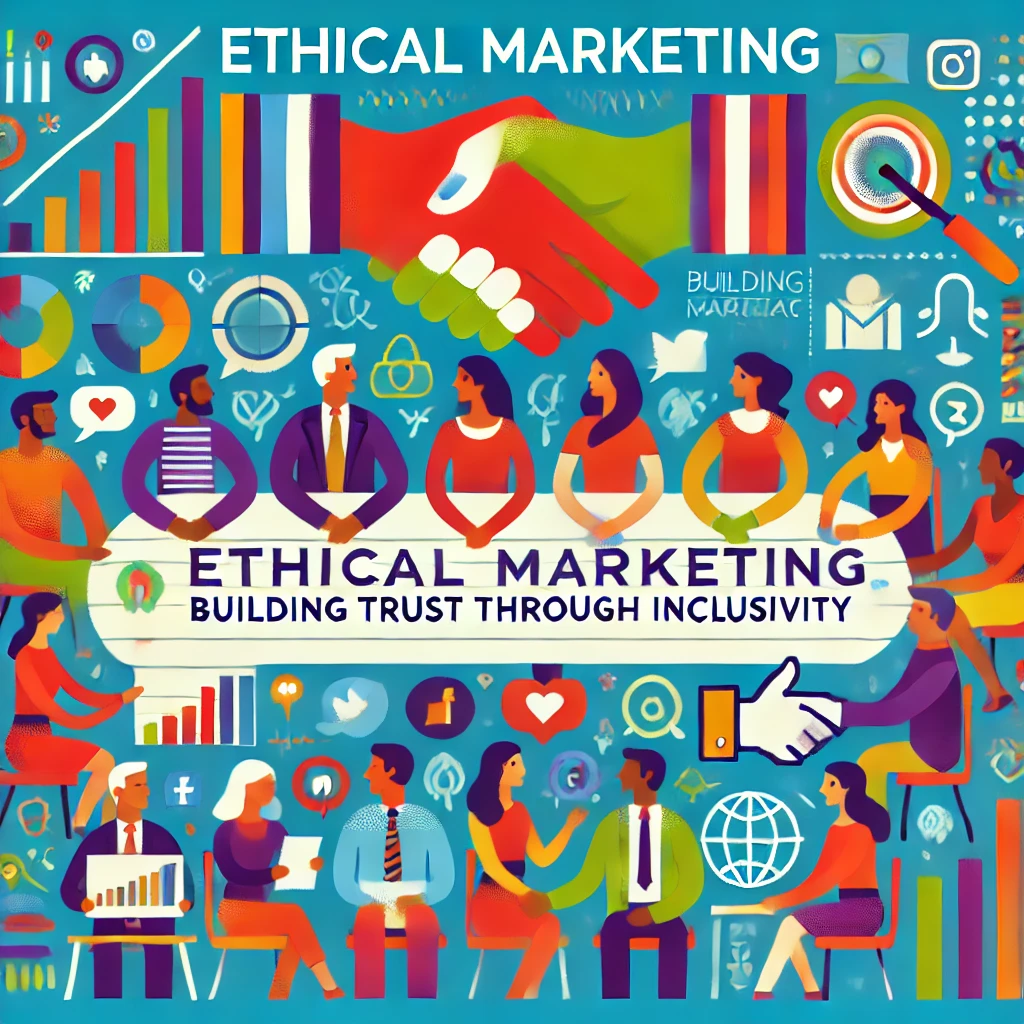Marketing isn’t just about selling products—it’s about building relationships. Today’s consumers don’t just want to buy things; they want to support brands that align with their values. One of the strongest values that businesses can embrace is inclusivity. But inclusivity in marketing isn’t just a trend—it’s an ethical responsibility. Ethical marketing that prioritizes inclusivity fosters trust, deepens customer loyalty, and strengthens brand reputation.
What Is Ethical Marketing?
Ethical marketing refers to marketing strategies and campaigns that are honest, responsible, and consumer-focused. It involves transparency, fairness, and integrity, ensuring that advertising and branding do not mislead, exploit, or exclude any group of people. Ethical marketing isn’t just about avoiding harm—it’s about actively doing good by promoting messages that resonate with diverse audiences and contribute to social progress.
The Role of Inclusivity in Ethical Marketing
Inclusivity in marketing means representing and respecting all people regardless of race, gender, age, ability, culture, or background. It goes beyond mere representation—it’s about making sure everyone feels seen, heard, and valued.
Consumers today are more socially aware than ever. They notice when brands embrace inclusivity authentically and when they do it as a performative marketing ploy. To build real trust, companies must integrate inclusivity into the core of their brand strategy rather than treating it as an afterthought.
Why Inclusivity Matters in Marketing
- Builds Trust and Credibility When brands showcase diverse and inclusive marketing, they signal to their audience that they recognize and respect different experiences. This builds credibility and strengthens trust among consumers who see themselves reflected in the brand’s messaging.
- Expands Market Reach An inclusive marketing strategy broadens a brand’s reach. By appealing to a wider audience, businesses can tap into new customer bases and foster connections with communities they might have previously overlooked.
- Enhances Brand Loyalty People support brands that support them. When consumers feel that a brand represents their values and identity, they are more likely to develop long-term loyalty, advocate for the brand, and recommend it to others.
- Drives Innovation Inclusive marketing isn’t just about messaging—it also influences product development. When companies embrace diverse perspectives, they create products and services that meet the needs of a wider range of consumers.
How Brands Can Implement Inclusive Marketing Ethically
1. Authentic Representation
Avoid tokenism. Simply featuring a diverse cast in advertisements isn’t enough—brands must also tell authentic, meaningful stories. Representation should extend beyond imagery to include the voices, experiences, and perspectives of diverse communities.
2. Accessible Content
Ensure that marketing content is accessible to people of all abilities. This includes adding captions to videos, using alt text for images, and designing websites that are easy to navigate for people with disabilities.
3. Inclusive Language
Words matter. Using gender-neutral language, avoiding cultural stereotypes, and being mindful of different linguistic backgrounds help make messaging more inclusive.
4. Engage With Diverse Communities
Involve people from different backgrounds in the creative and decision-making process. Brands should collaborate with diverse influencers, creators, and consultants to ensure that campaigns are truly representative.
5. Hold Yourself Accountable
Companies should not only commit to inclusivity but also be open to feedback. If a brand makes a mistake, acknowledging it and taking corrective action can strengthen credibility rather than weaken it.
Brands That Have Done It Right
Many brands have successfully incorporated inclusivity into their marketing strategies. For example:
- Nike has launched campaigns celebrating athletes of all abilities, gender identities, and racial backgrounds.
- Dove has consistently championed diverse body types and natural beauty through its Real Beauty campaign.
- Fenty Beauty by Rihanna revolutionized the beauty industry by offering an extensive range of foundation shades for all skin tones.
These brands have proven that inclusive marketing isn’t just good ethics—it’s also good business.
Conclusion
Ethical marketing with a focus on inclusivity isn’t just the right thing to do—it’s the smart thing to do. Brands that embrace diversity and inclusivity build lasting trust, connect with broader audiences, and contribute to a more just and equitable society. Consumers are paying attention, and the brands that prioritize inclusivity with authenticity will be the ones that thrive in the long run.
By committing to ethical and inclusive marketing, businesses don’t just sell products—they create meaningful impact.

